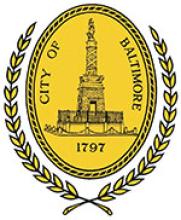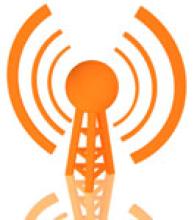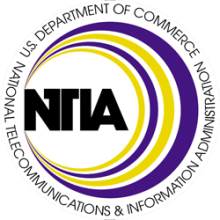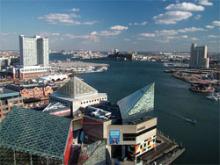Fast, affordable Internet access for all.
baltimore
Content tagged with "baltimore"
Update on Baltimore's Municipal Fiber Plan
Kevin Litten, of the Baltimore Business Journal has published a good discussion of why Baltimore is considering a public investment to expand the City's fiber network.
Councilman William H. Cole IV still bristles when he talks about the absence of FiOS in the city, a decision industry observers say has played out in other urban areas where the suburbs outrank the city in wealth. “When you look at a map of Maryland and what counties they chose to skip, Baltimore stands out, and it stands out for all the wrong reasons,” Cole said. “We need to explore every option we have to remain competitive. You can’t talk about being a great city for biotech and trying to attract startups and continue to expand the [University of Maryland] BioPark and not continue to invest.”
Litten also explored how Comcast is damaging area businesses by abusing its position as the sole citywide provider of fast Internet access (Verizon does poor DSL):
At No Inc., a 10-employee tech firm that develops software for commercial real estate, Chief Technology Officer Alex Markson said that Comcast wanted to charge $20,000 to build infrastructure to the company’s small office building on Water Street downtown.
The company had to settle for an affordable, but vastly inferior wireless connection from Clear using WiMAX. Keep this in mind the next time you hear that wireless is providing an alternative to the cable and telephone monopolies.
But that setup, which includes a barbecue grill-like satellite dish pointed out the window of the company’s offices, isn’t ideal. Productivity plummets when employees have to wait for long downloads. When using technology such as GoToMeeting to make sales pitches, “you’re not crushing it because you look like you’re slow,” Markson said.
And finally, Litten quotes some guy named Christopher Mitchell that seems to know what he is talking about:
Baltimore Once Again Considering Publicly Owned Options
Back in 2010, we reported on the City of Baltimore and its frustration with Comcast and desire to have a real choice for Internet access. Nothing came of the idea at the time but the Baltimore Business Journal reports that Baltimore is once again considering the possibility of a publicly owned network.
The Board of Estimates recently decided to hire Magellan Advisors to provide a study that will offer several options for the community of 619,000 residents. The study will cost $157,000 and will identify key anchor tenants, cost analysis, and risk assessment related to a municipal broadband network.
Given Baltimore's situation, we doubt very much that they will proceed with a full-on universal FTTH network. Rather, we expect to see Baltimore considering an incremental approach that starts by serving community anchors (schools, libraries, public safety, etc.) and also may make conduit and fiber available for local businesses or other ISPs.
Comcast has no real competition in Baltimore, not because of the franchise as intimated by numerous factually incorrect articles covering this news, but because private companies are too intimidated by Comcast and its bag of dirty tricks to invest in a competitive system. No local government can establish a cable or Internet monopoly under federal law dating back to 1992.
According to the article, Baltimore already has some fiber assets:
A major part of what Magellan is being hired to study is what’s known as the city’s “fiber ring,” a 30-mile fiber optic cable network that supports the city’s public safety radio system. As the city prepares to make improvements to the system, [CIO Chris] Tonjes said the city also wants to add capacity through a process called “overbuilding” that would allow the city to lease some of the extra bandwidth to the private sector.
Five Cities Denounce Verizon/Comcast Spectrum Deal
If you live in Boston, Baltimore, Albany, Syracuse, or Buffalo, you won't be getting FiOS from Verizon. Absent any public investment, you will likely be stuck with DSL and cable... like 80% of the rest of us.
Not long after Verizon announced it would cease expanding FiOS, we learned that Verizon was coming to an arrangement with the cable companies that would essentially divide the broadband market. Verizon won't challenge cable companies with FiOS and the cable companies won't challenge Verizon's "Rule the Air" wireless domain.
For a while now, the FCC has reviewed a potential deal for a Verizon purchase of Comcast's wireless spectrum. The possible deal involves multi-layered questions of anti-competitive behavior, collusion, and corporate responsibility.
Along with many other interested parties, such as the Communications Workers of America, Free Press, Public Knowledge, and the five towns are publicly opposing the deal. They have expressed their derision to the FCC but whether or not they will influence the result remains to be seen.
From a FierceTelecom article by Sean Buckley:
Curt Anderson, chair of the Baltimore City Delegation to the Maryland House of Delegates, expressed...outrage on the agreement the telco made.
"Under this transaction, Baltimore will never get a fiber-optic network, and the city will be at a disadvantage," he said. "The direct job loss will be the hundreds of technicians that would be employed building, installing and maintaining FiOS in the area. The indirect costs of this deal are even higher: the lack of competition in telecommunications will raise prices and reduce service quality.
And:
The deal, said Albany Common Council President Carolyn McLaughlin, "is not in the best interest of those who need to get and stay connected the most and is "a step backwards in bridging the digital divide."
Maryland's $115 Million Federal Broadband Stimulus Award
The broadband funding will result in vastly improved Internet speeds for local government offices, schools, hospitals, and emergency communication networks across Maryland, officials said. More than 1,200 miles of new fiber-optic cable will be installed across Maryland — a 50 percent increase over the existing network capability, officials said. … The money will be used to link 458 schools, 44 libraries, 262 police and emergency centers, 15 community colleges, six universities and 221 other government and community centers in a statewide network designed to be available and secure in emergencies.As the networks are built with funds from the broadband stimulus, the networks will not be silo'ed, as is too often the case with public networks built primarily to connect community institutions. These networks will be available for the private sector to lease as well, creating more opportunities for broadband expansion and future competition. However, the track record of these middle mile networks creating last-mile connections is extremely poor. So let's not get too carried away, but it is a good step in the direction of local self-reliance and less of a dependency on massive absentee companies. Credit goes to Howard County's Ira Levy, who worked for more than a year to put the project together.
Much of the money — about $72 million dedicated to the 10 jurisdictions in Central Maryland — will be administered by Howard County.
Baltimore Ponders Muni Fiber Network
"We can't sit here and wait for a gift from Google to fall on us from the sky," said Tom Loveland, whom Rawlings-Blake has appointed the city's volunteer Google czar. "This is our future we're talking about here. Those of us involved in the conversation have seen what other cities have already accomplished. These folks managed to get themselves wired without Google. If they can do it, we can do it, too."Bingo. Apparently, lots of Baltimore folks are interested in the idea. Some 200 people turned out for this discussion and the group has a lively online discussion group as well as a site detail the community support for the project. The Mayor has created a panel to study the manner. They have already turned to ask Mayor Durel of Lafayette, always a good start. Another place panels like this can start is the still-relevant report by a Task Force in St. Paul. According the article in the Sun, an FCC staffer also presented to the group of 200:
At the symposium, John Horrigan, consumer research director at the FCC, said studies have shown that the technological availability of basic broadband service is not the main problem because 95 percent of Americans have the technical means to access it. Rather, nearly a third of Americans are choosing not to use broadband, citing high costs or a lack of digital literacy or computer skills.These are the sort of statements that infuriate me because they incorporate so many important caveats. 95% of Americans may have access to something faster than dial-up. But probably not given how much the telcos overestimate the reach of their DSL. Though Horrigan notes the high costs, we know very little about what these costs are. If someone could buy a connection only slightly faster than dial-up at a cost of 3x dial-up, they are probably smart to stick with dial-up. It tells us nothing of what they would do with a real choice.






